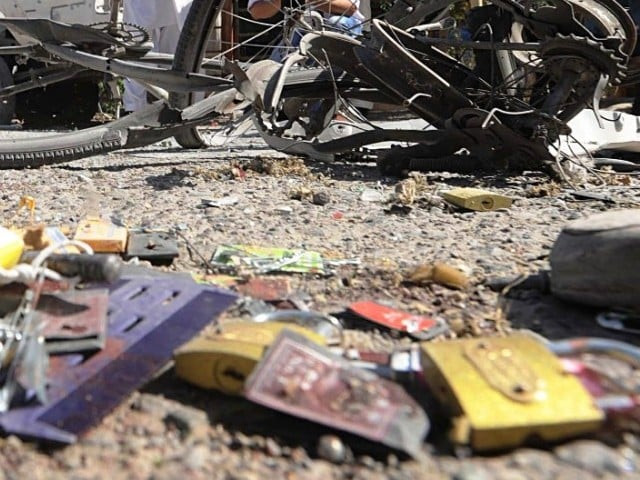The terror tsunami
Army is fighting the war against terrorists in the mountains, but war for hearts & minds has yet to be even sketched


There was a significant rise in incidents of terrorism in Pakistan in 2013, a rise that was also seen in other parts of the world, particularly those involved in or directly affected by, the Arab Spring. The number of terrorist groups operating in Pakistan has decreased from 29 to 23, but this is small comfort. The deadliest by far and the one which the state is actively fighting — though only in the mountainous borderlands and not in the havens long established in Punjab — is the Tehreek-e-Taliban Pakistan (TTP).
The TTP claimed responsibility for around a quarter of all deaths from terrorism in 2013 and 49 per cent of all attacks countrywide. The TTP are well organised, even though factionalised, use intelligence effectively, have no difficulty recruiting or obtaining funding for their activities, and have tacit support in some sections of the population. They have proved themselves adaptable and capable of mounting complex operations, and viewed holistically, are the single greatest terrorist threat the country faces. The wave of terror that Pakistan is experiencing is leaving in its wake precisely what was intended — a cowed and frightened populace, crippled and ineffective administrations and a fertile seedbed for the planting of the terror paradigm. The military is fighting and seemingly winning the war in the mountains, but the war for hearts and minds has yet to be even sketched, never mind fought.
Published in The Express Tribune, November 20th, 2014.
Like Opinion & Editorial on Facebook, follow @ETOpEd on Twitter to receive all updates on all our daily pieces.















COMMENTS
Comments are moderated and generally will be posted if they are on-topic and not abusive.
For more information, please see our Comments FAQ